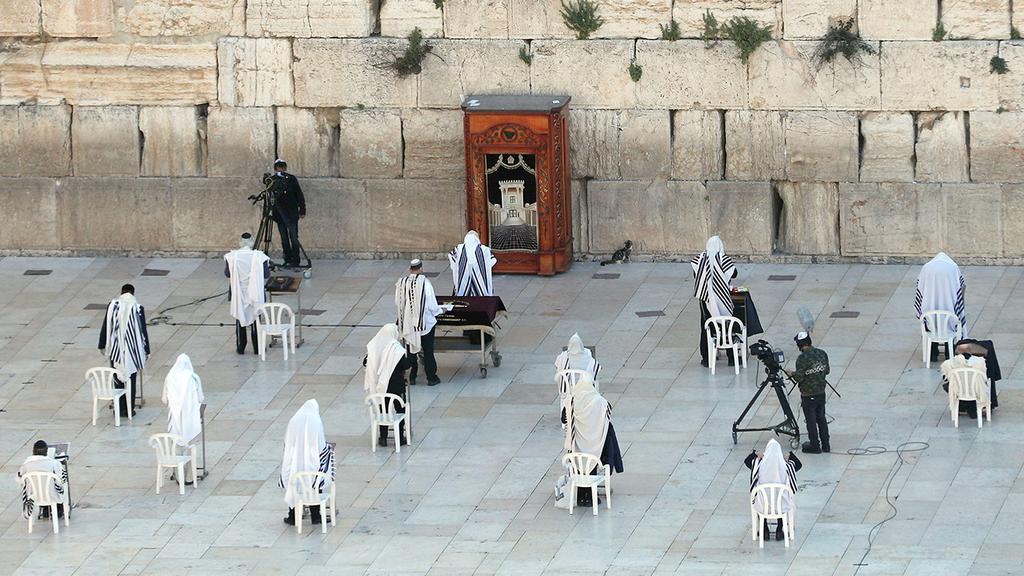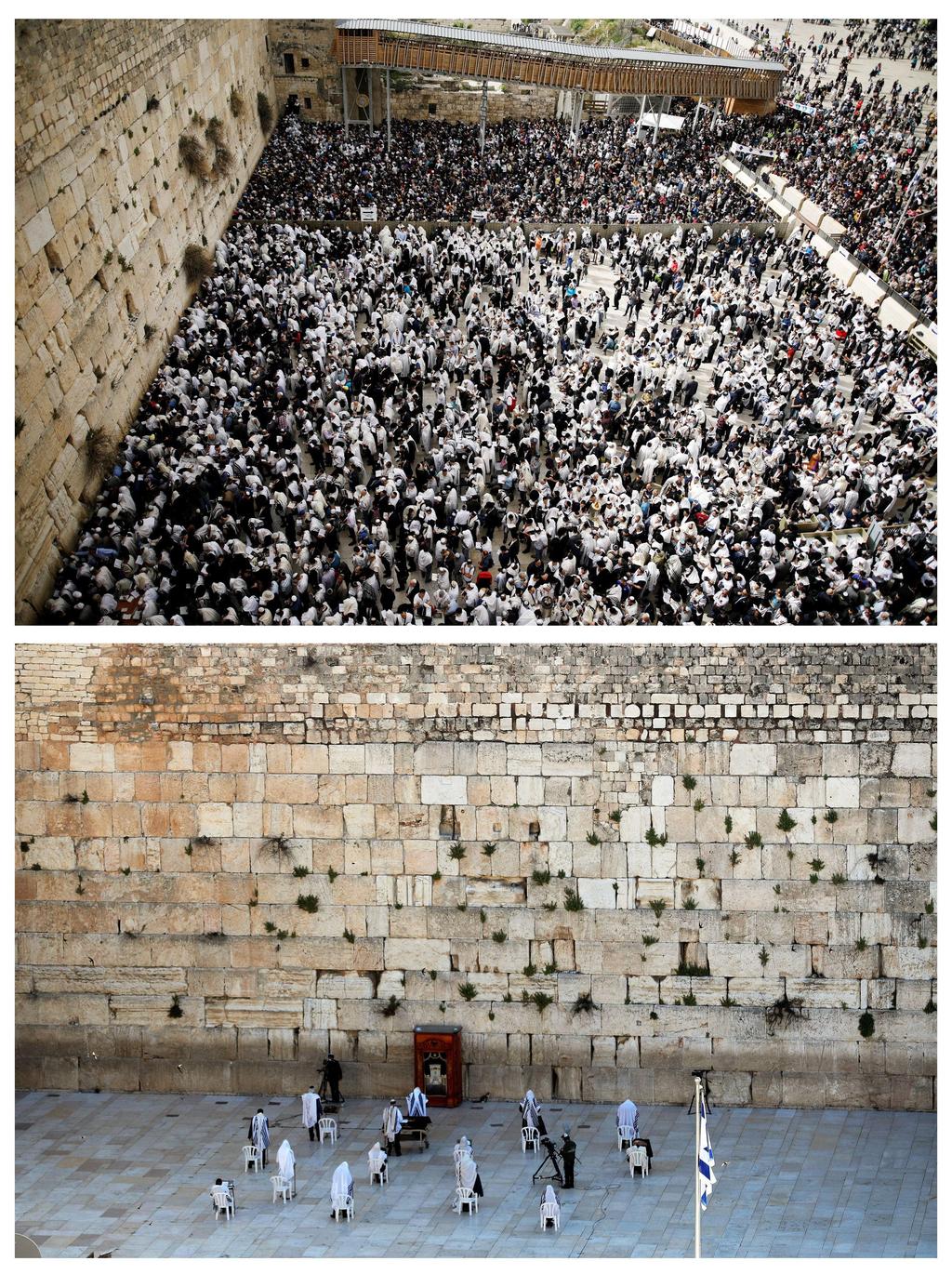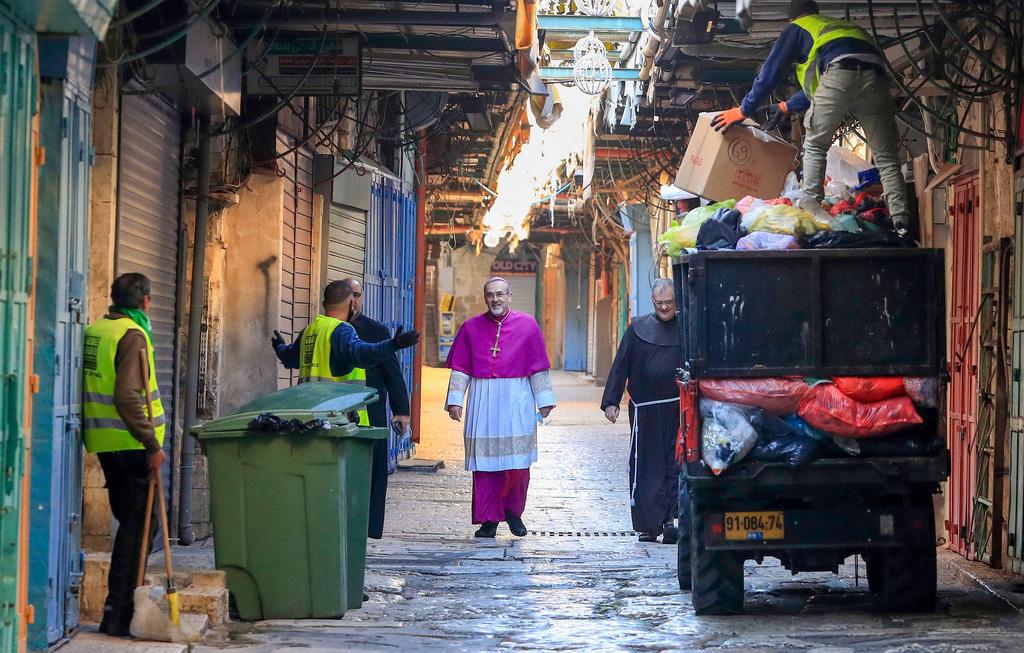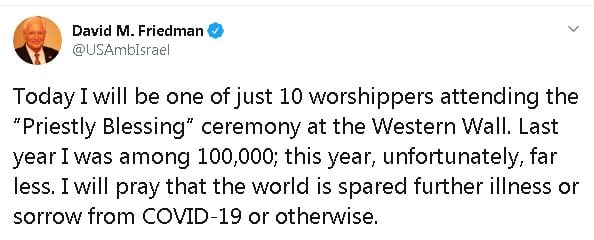Getting your Trinity Audio player ready...
Ten Jewish worshippers wearing face masks prayed at the Western Wall on Sunday at Birkat Hakohanim, a special priestly blessing during the holiday of Passover, an event usually attended by thousands.
Because of coronavirus restrictions banning large public gatherings, the group maintained social distancing at the holy site in Jerusalem's walled Old City.
U.S. Ambassador to Israel David Friedman was among the group attending on Sunday.
"Last year I was among 100,000; this year, unfortunately, far less," Friedman wrote on Twitter.
4 View gallery


A small number of Jewish worshippers pray during the priestly blessing for Passover at the Western Wall, April 12, 2020
(Photo: Reuters)
"I will pray that the world is spared further illness or sorrow from COVID-19 or otherwise," he wrote.
The blessing is carried out by members of the Jewish priestly caste, known as Kohanim in Hebrew.
Holding prayer shawls above their heads and covering their faces, they chanted the blessing, starting with: "The Lord blesses you and keeps you."
Kohanim are thought to be descended from the line of the biblical Aaron and are often referred to as Jewish priests because of their prominent role in worship in Judaism's two ancient Temples in Jerusalem.
The ceremony is held during the Jewish holidays of Passover and Sukkot.
4 View gallery


Top: Thousands of worshippers taking part in the priestly blessing during Passover 2017; bottom: The small number of worshippers at this year's blessing
(Photo: Reuters)
The Western Wall is holiest place where Jews are allowed to pray in Jerusalem, it was built more than 2,000 years ago by Herod the Great.
The blessing is the latest in a series of religious rituals curtailed as Israel - like the rest of the world - tries to stem the spread of the coronavirus.
Only a handful of clergy were on hand for the Easter Sunday Mass in Jerusalem, and the streets of the Old City surrounding the church were empty of pilgrims and vendors who would normally be doing brisk business.
At the Church of the Holy Sepulchre, where many Christians believe Jesus was crucified and entombed, Archbishop Pierbattista Pizzaballa, the top Roman Catholic cleric in the Holy Land, urged the faithful to not be discouraged.
4 View gallery


Archbishop Pierbattista Pizzaballa walks past garbage collectors in the Old City of Jerusalem as he makes his way to the Church of the Holy Sepulchre for the Easter Sunday service, April 12, 2020
(Photo: AFP)
"Despite the sign of death and fear that we are seeing everywhere all over the world, we have to look at the good all those that are giving their lives for the others," he said.
"The message of Easter is that life, despite all will prevail," said Pizzaballa.
On Wednesday, Israeli Jews were confined to their homes in order to prevent mass gatherings on the first night of Passover, traditionally a time for families to celebrate together.
Last week, just a handful of Franciscan monks and Roman Catholic faithful took to the streets of Jerusalem's Christian Quarter to distribute olive branches after the traditional Palm Sunday procession was canceled due to the restrictions.


